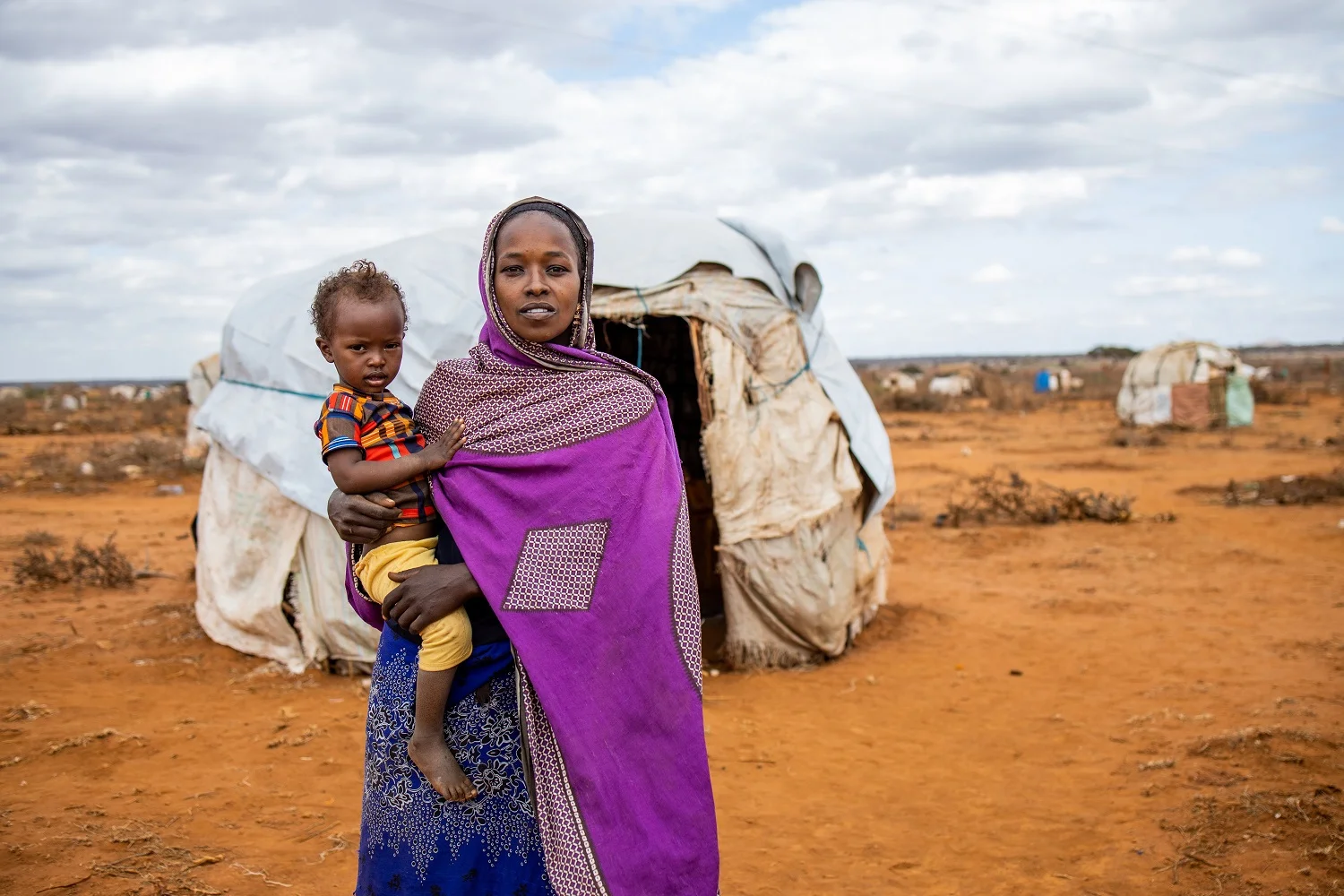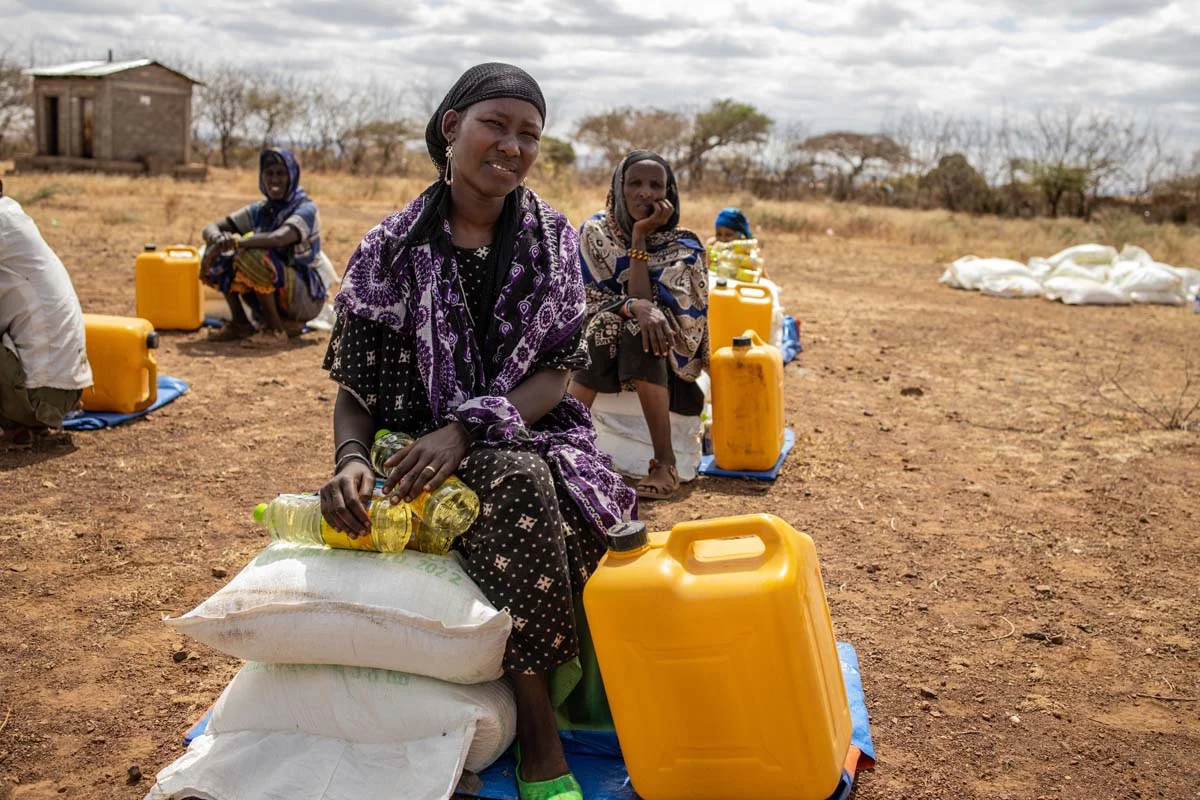The first 40-ton trucks with corn flour and cooking oil have arrived in Borena: our emergency aid campaign for the shepherds in the very south of Ethiopia has begun successfully. Not too soon: the youngest children in particular are suffering greatly from shortages and hunger.
The vegetation is withered, the earth bare. Gusts of wind whirl up the red dust, tugging at the round dwellings that the people have tied together from branches, rags and plastic sheeting. The women's brightly colored garments are the only splash of color in a bleak situation: most of them have been here for five months in the Bekata Camp in the Dubuluk district in the Borena region in the very south of Ethiopia. Many men are still out and about in the vast savannah, looking for grass and water for the last surviving animals.

The Borena herders have been hit hard by the worst drought in the Horn of Africa in forty years: the families' goats, cows and camels have starved and died of thirst. The people have survived so far because they share what little they have left, as is the tradition of nomadic peoples.
Many women collected branches in the savannah to sell them on the streets for a little money - firewood for cooking fires is in short supply throughout Ethiopia. Others sought income as day laborers, but due to the strong competition from other climate refugees, jobs are scarce and daily wages have fallen by half from 100 birr to 50 birr (90 centimes).
Now the families are at the end of their strength, as a visit to the huts shows. Tenu Boru, 25, lives in one of the huts with her two children. "We had 35 cattle. They all died: there was no rain, so no grass," she says. "Now we fear for our own lives."
Tuheme, her two-year-old daughter, is crying. Her mother breastfeeds her, but that does not calm the little girl. She stumbles into a corner of the hut, fetches a pot and carries it to her mother. Tenu takes the pot from the child's hand. The pot is empty. The child looks at it and starts crying again. "She is hungry, she wants something to eat," says Tenu.
Fortunately, the first emergency aid from Menschen für Menschen is finally arriving today. Maize for the shepherds of Borena was bought on a large farm in northwest Ethiopia near Lake Tana - in total, Menschen für Menschen is bringing around 200 tons to the disaster area in the south. The trucks needed four days to travel 900 kilometers along pothole-filled roads to the south of Ethiopia to the suffering pastoralists.

At the first distribution point in Bekata Camp, around 300 people, mostly women, are already waiting, packed tightly under acacia trees. In cooperation with the local authorities and the herders' community, lists of those in need have been drawn up in advance. A total of 4,539 people will receive 15 kilograms of maize flour and half a liter of cooking oil. Washing soap and tarpaulins will also be distributed. The recipients, mostly women, acknowledge receipt with a fingerprint. The older recipients in particular express their gratitude exuberantly.
"Unfortunately, the camps have continued to grow since our first exploratory visit," laments Getachew Zewdu, country representative of Menschen für Menschen , who supervised the distribution on site. "Even more climate refugees arrived." In addition to this first distribution, two more are planned by the end of September. "Then the rainy season should begin and the situation should slowly ease - hopefully."






